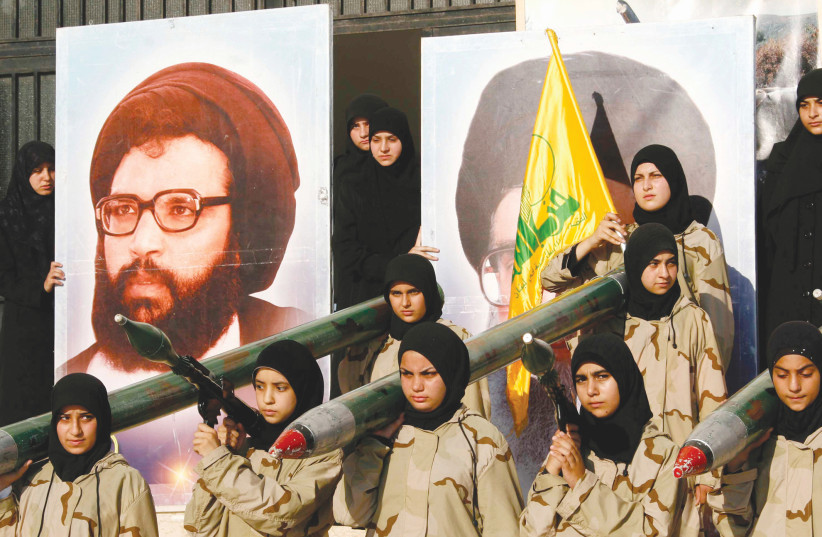Following the assassination, Hezbollah’s Unit 910 emerged as a clear and immediate threat to Israeli and Jewish interests worldwide, according to the Alma Research Center on Saturday.
The unit, known as the "Black Unit" or "Shadow Unit," has in the past operated in the Americas, Europe, Africa, and Asia and was capable of launching significant retaliatory attacks on short notice. Approximately 32 years ago, after the assassination of former Hezbollah leader Abbas al-Musawi, the unit successfully conducted retaliatory operations.
Hezbollah operated Unit 910, one of the organization’s most secretive and dangerous branches, falls under the command of Talal Hamiyah, also known as "Abu Jaafar."
The unit is responsible for global terror activities outside of Lebanon and is closely aligned with Iran’s Islamic Revolutionary Guard Corps (IRGC). Researcher Tal Barry described Unit 910 as Hezbollah’s primary operational arm for conducting international attacks.
"The unit operates in a wide range of areas with pre-prepared terror infrastructures ready for immediate action," Barry explained.
Oversees activities
The unit has been involved in several high-profile attacks, including the bombing of the Israeli embassy in Buenos Aires in 1992 and the Jewish community center in Argentina in 1994. In 2012, it carried out a suicide bombing on a bus carrying Israeli tourists in Burgas, Bulgaria.
The unit has maintained strict secrecy in its operations, relying on local Shiite networks and criminal organizations worldwide. Operatives, who have undergone rigorous security training and have often held foreign citizenships, have operated under civilian cover and exploited connections with Hezbollah supporters and foreign governments for logistical and operational purposes.

In recent decades, Unit 910’s activities have primarily focused on South America, Africa, and Asia, but it has also operated in the US and Europe.
"The unit has played a significant part of Iran’s shadow war against the West," Barry noted, targeting American security and intelligence institutions as well as civilians.
According to US reports, Unit 910 had planned attacks on key sites, including JFK Airport in New York. The unit's activities in the US were exposed when Ali Kourani, a Hezbollah operative arrested in the US, revealed the group's plans for attacks in the US and Israel.
